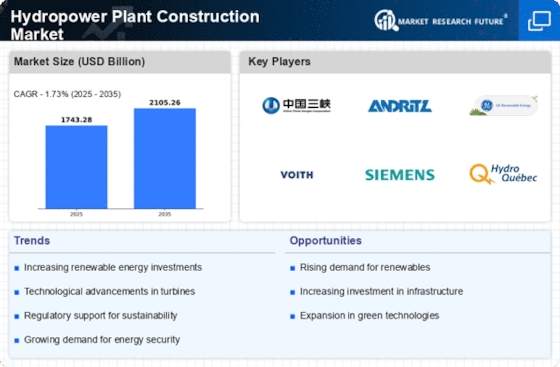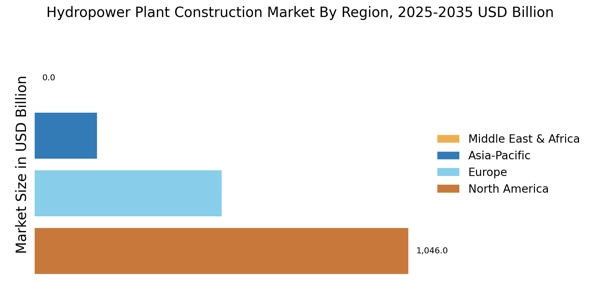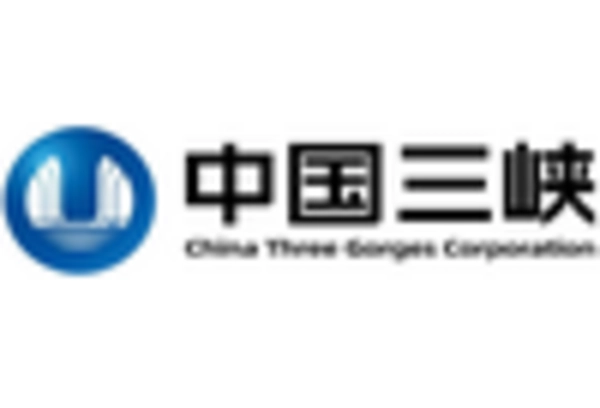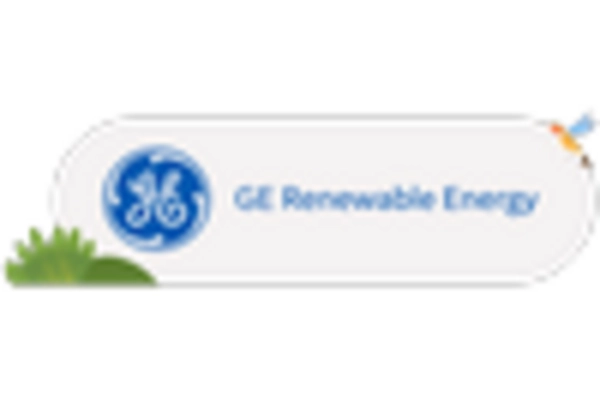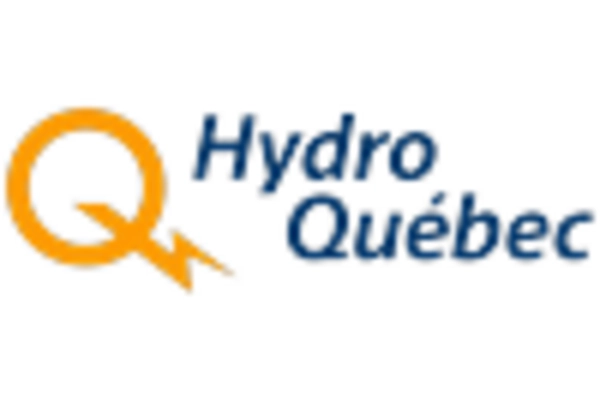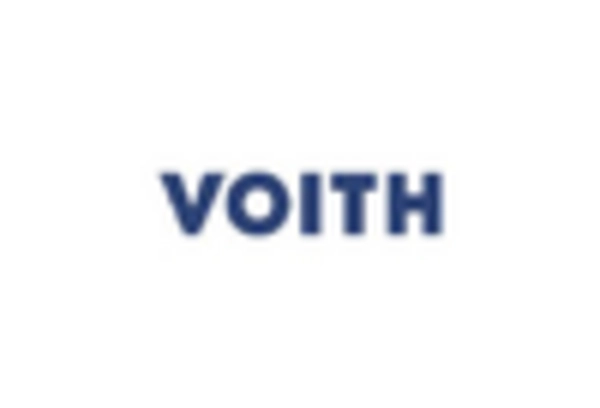Rising Demand for Clean Energy
The increasing The Hydropower Plant Construction Industry. As nations strive to meet their carbon reduction targets, hydropower emerges as a viable solution due to its low emissions and renewable nature. In 2025, it is estimated that hydropower will contribute to approximately 16% of the world's electricity generation. This growing demand for clean energy is likely to spur investments in new hydropower projects, thereby enhancing the construction market. Furthermore, the shift towards electrification in various sectors, including transportation and industry, is expected to further elevate the need for reliable and renewable energy sources, positioning hydropower as a key player in the energy transition.
Government Policies and Incentives
Government policies and incentives play a crucial role in shaping the Hydropower Plant Construction Market. Many countries are implementing favorable regulations and financial incentives to promote renewable energy projects, including hydropower. For instance, tax credits, grants, and subsidies are being offered to developers to encourage investment in hydropower infrastructure. In 2025, it is projected that such supportive measures will lead to a significant increase in hydropower capacity, with an expected growth rate of around 5% annually. These policies not only facilitate the construction of new plants but also enhance the feasibility of retrofitting existing facilities, thereby expanding the overall market potential.
Increased Focus on Energy Security
Energy security remains a paramount concern for many nations, thereby impacting the Hydropower Plant Construction Market. As countries seek to diversify their energy portfolios and reduce dependence on fossil fuels, hydropower is increasingly viewed as a stable and reliable energy source. In 2025, it is projected that hydropower will play a critical role in enhancing energy security, particularly in regions vulnerable to energy supply disruptions. The ability of hydropower plants to provide baseload power and support grid stability makes them an attractive investment for governments aiming to ensure a resilient energy infrastructure. This focus on energy security is likely to catalyze further development and construction of hydropower facilities.
Growing Water Resource Management Needs
The necessity for effective water resource management is becoming increasingly apparent, thereby influencing the Hydropower Plant Construction Market. As water scarcity issues intensify in various regions, hydropower plants are being recognized for their dual role in energy generation and water management. In 2025, it is expected that hydropower projects will be integrated with water storage solutions, providing essential services such as flood control and irrigation support. This multifaceted approach not only addresses energy needs but also contributes to sustainable water management practices, making hydropower an attractive option for governments and investors alike. Consequently, this trend is likely to drive further investments in hydropower construction.
Technological Innovations in Hydropower
Technological advancements are transforming the Hydropower Plant Construction Market by enhancing efficiency and reducing costs. Innovations such as improved turbine designs, advanced materials, and digital monitoring systems are enabling more effective energy generation and management. In 2025, the integration of smart grid technologies is anticipated to optimize hydropower operations, allowing for better integration with other renewable sources. This technological evolution not only increases the attractiveness of hydropower projects but also contributes to their economic viability. As a result, stakeholders are likely to invest more in hydropower construction, recognizing the potential for higher returns on investment through enhanced operational efficiencies.


